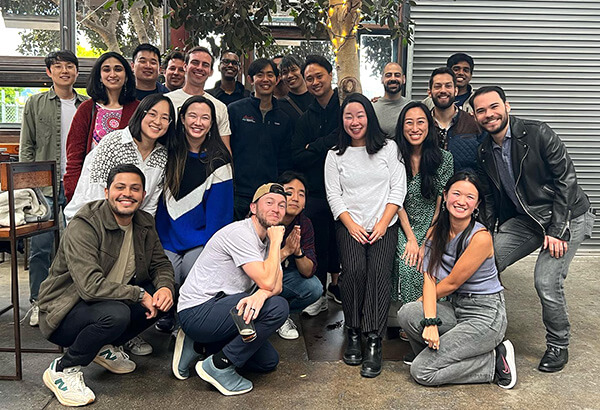Curriculum
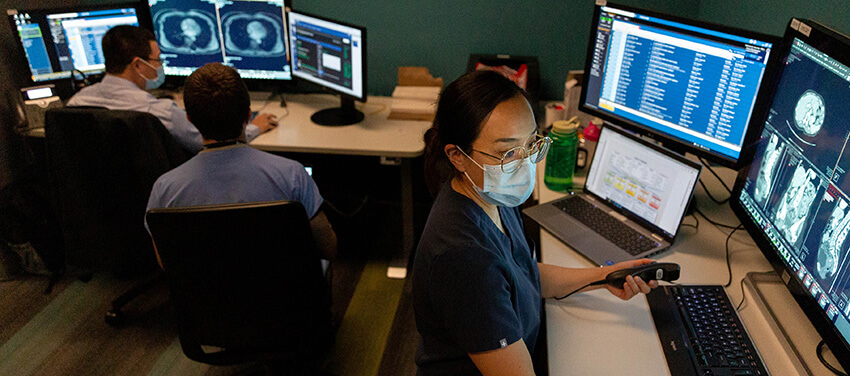
Clinical Education
At UCSF Radiology, we are dedicated to providing exceptional clinical education to our residents. Our comprehensive clinical education program ensures that our trainees receive a well-rounded and immersive learning experience. With access to state-of-the-art technology and a diverse range of cases, our residents gain valuable hands-on experience in interpreting various modalities, performing common and uncommon procedures, and interfacing with our colleagues across every specialty. Our esteemed faculty members are passionate educators who foster an environment conducive to learning and encourage intellectual curiosity. We prioritize clinical excellence, patient care, and interdisciplinary collaboration, preparing our residents to become leaders in the field of radiology.
Clinical Sites
Our residents operate across multiple clinical sites, each with a unique focus and patient population. Our flagship site at Parnassus serves a wide breadth of the Bay Area population and beyond, providing advanced imaging services for patients with intricate, complex medical conditions. The UCSF Benioff Children’s Hospital is dedicated to pediatric radiology, offering specialized expertise and tailored imaging protocols for children of all ages. The VA Medical Center serves our nation's veterans, providing comprehensive radiology services to this deserving population. Finally, Zuckerberg San Francisco General Hospital & Trauma Center, the single level 1 trauma center serving all of the city, plays a critical role in providing emergency radiology services for patients with traumatic injuries. With this diverse range of clinical sites, UCSF Radiology ensures that our residents receive an exceptional breadth and volume of training across the lifespan.
Rotations
The academic year is divided into 13 four-week blocks. The R1 curriculum consists of a standardized set of core rotations in preparation for R2 overnight call with rotations focusing on abdominal radiology, emergency radiology, ultrasound, thoracic radiology, and neuroradiology. In preparation for CORE, the R2 and R3 rotations are focused on advanced imaging in various subspecialties with dedicated rotations covering abdominal, neuro and musculoskeletal MRI as well as rotations in nuclear medicine, cardiac imaging, and breast imaging. Diagnostic radiology residents will have interventional radiology rotations in their R2 year with additional rotations available in R3 depending on interest in the ESIR pathway.
After satisfying departmental and specialty-level requirements (such as the 16 weeks of nuclear medicine and 12 weeks of mammography mandated by the American Board of Radiology), residents are given considerable flexibility to structure and customize their learning experiences to suit their own career goals. Residents typically have up to 12 months of elective time and may choose to have a focused experience in a clinical field or in an area of research interest.
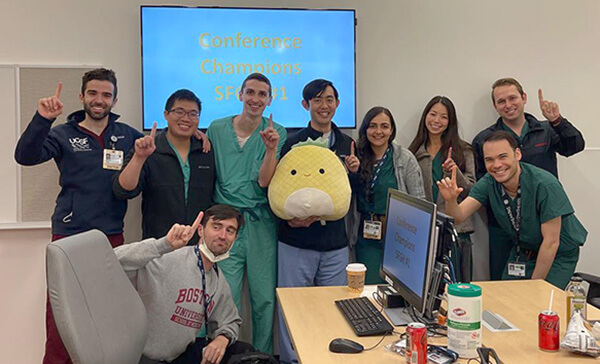
Conferences
Residents have protected time for conference every day from 8-9 AM and 12-1 PM. From didactic lectures to case-based conferences, these conferences are designed to broadly prepare residents for clinical practice and to pass the American Board of Radiology's CORE exam. From the months of March until May, the daily conferences become specifically designed to prepare residents for the milestones of starting independent call in the PGY-3 year and to prepare for the CORE exam in the PGY-4 year.
In addition, UCSF Radiology offers an expansive array of digital teaching media, including an electronic teaching file database featuring nearly 70,000 unique and interesting cases.
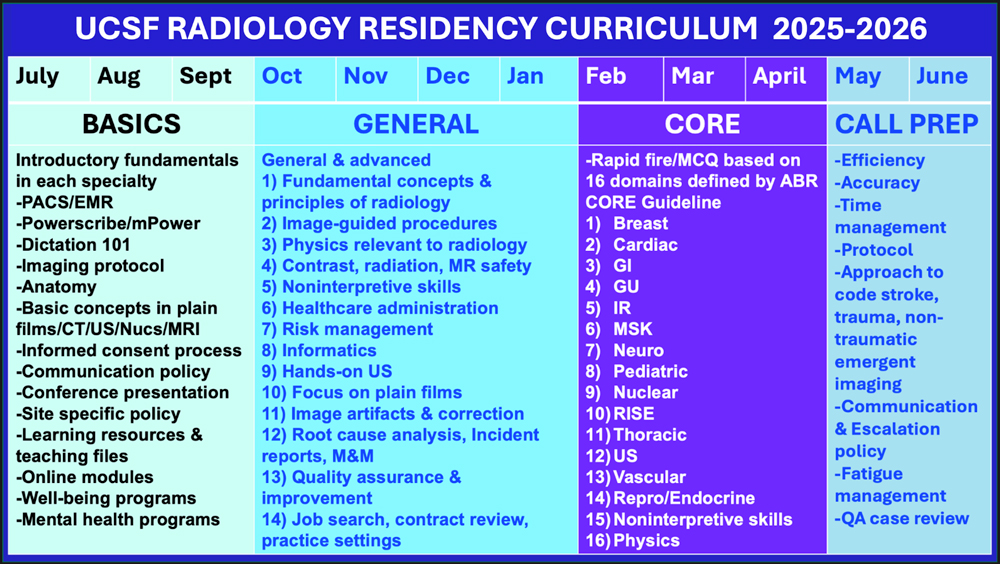
Call Responsibilities
Our residency is proud to maintain true independent call. This experience is an invaluable asset to the training experience, giving our residents the autonomy to drive patient care decisions long before the completion of their training. Call frequency decreases during the PGY-4 and PGY-5 years and the period leading up to the CORE exam is call free. Our residents cover after-hour, in-house radiology services at Parnassus, Mission Bay and Zuckerberg San Francisco General Hospital (ZSFGH), serving as the primary radiology consultants for the vast majority of all UCSF hospital systems after hours. Attending feedback for cases are provided electronically at the time of final interpretation, typically within 24 hours.
PGY-2 residents do not take call. There are no evenings, weekends or holiday call responsibilities. Buddy call shifts begin at the second half of the year to assist with transitioning.
PGY-3 residents are responsible for call coverage at all sites, and this year is emphasized as the most call-intensive year so that residents can develop early expertise and confidence with independent interpretative responsibility. Shifts include evening weekday shifts from 5pm to 8pm, weekday/weekend overnight call 8pm to 8am, and weekend/holiday call from 8am to 8pm. With on-site senior residents and remote overnight attending support, our PGY-3 residents provide “wet-read” interpretations of CT, ultrasound, and plain film studies.
PGY-4 and 5 residents share the same call pool for multimodality call coverage at Parnassus and Mission Bay, and are responsible for MRI and ultrasound at ZSFGH.
During interventional radiology rotations, PGY-3-5 residents take pager call for emergency procedures from home.
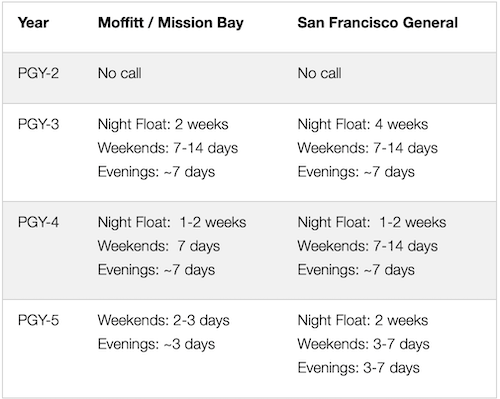
Core Preparation
UCSF radiology residents are well-prepared for the CORE examination through a comprehensive set of resources and support. They benefit from dedicated lecture series that specifically target the exam content and provide in-depth preparation. Attendance at the renowned American Institute for Radiologic Pathology (AIRP) conference further enhances their knowledge base. Additionally, residents enjoy a call-free period leading up to the exam to facilitate focused study time, and educational funds are available to facilitate the purchase of question banks for additional practice and reinforcement.
